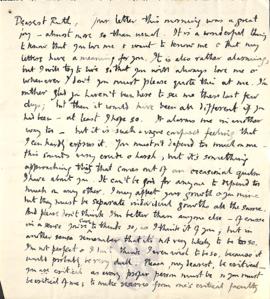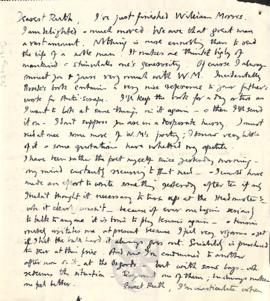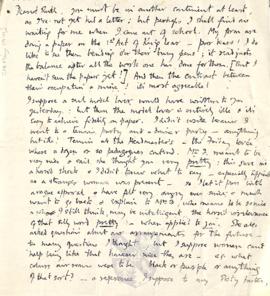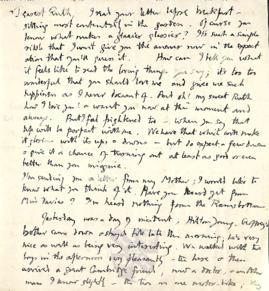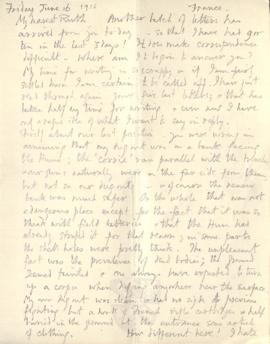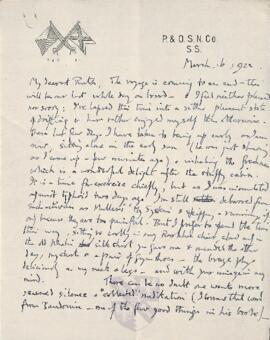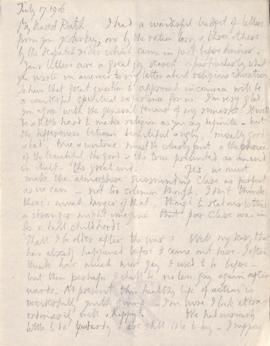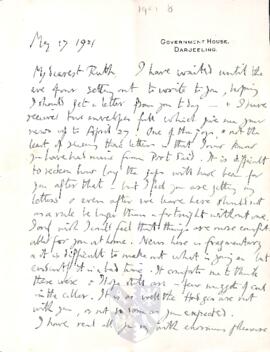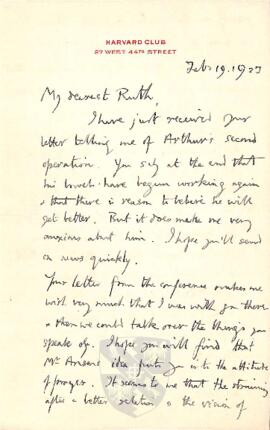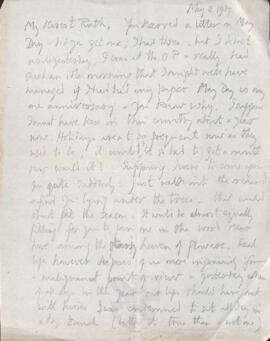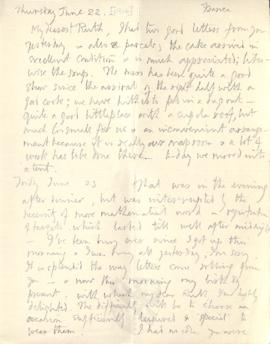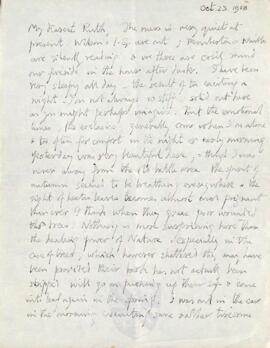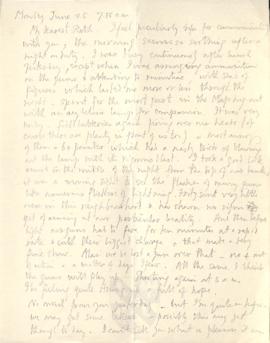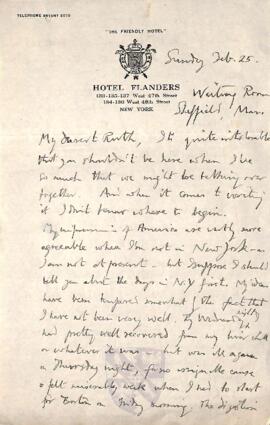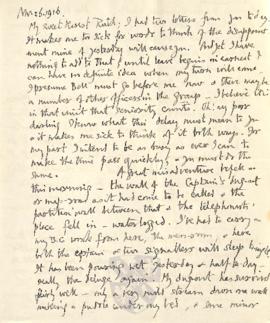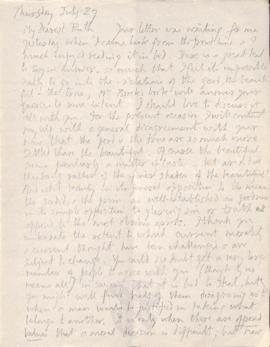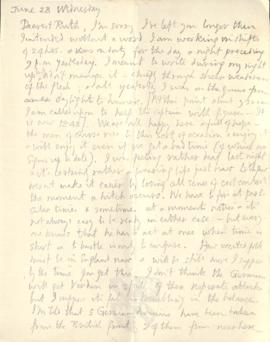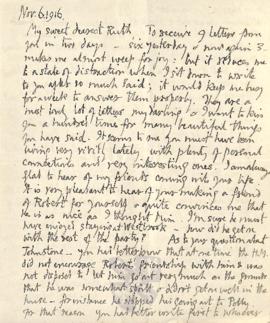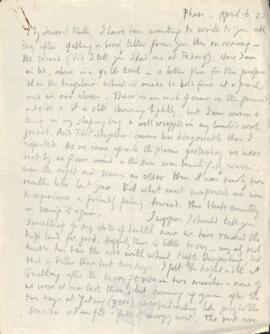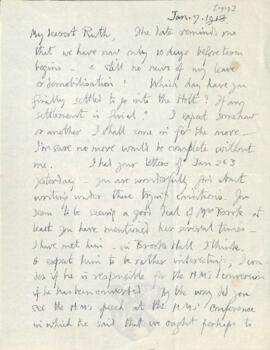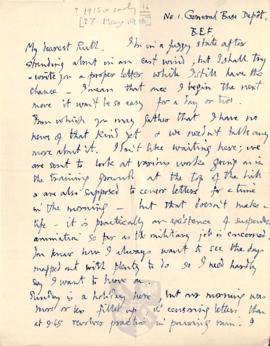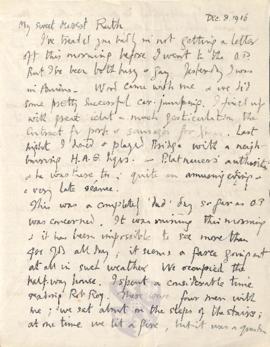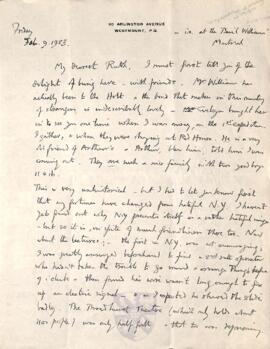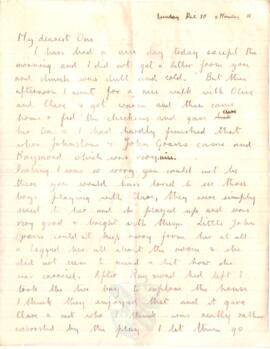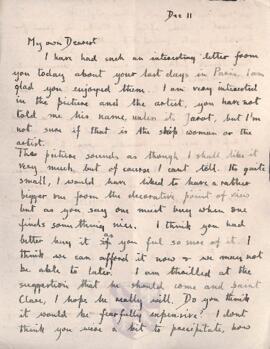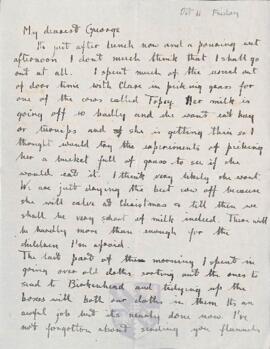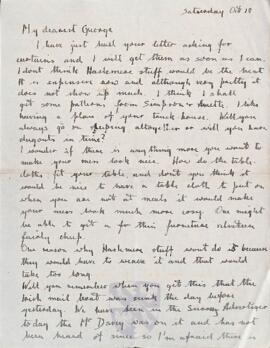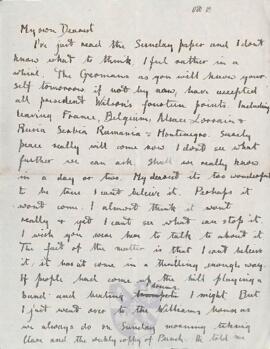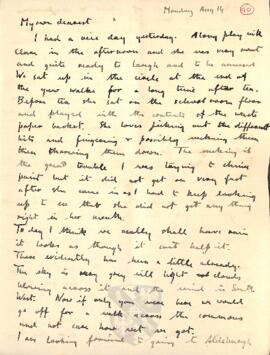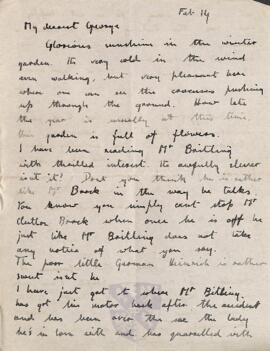Letter to Ruth Mallory, from Phari.
Brief Summary
Details journey. Had a cold. Was in charge of climbing equipment. Had helped Noel develop photos and cinema films. Was awaiting new boots. Low opinion of Howard-Bury's book about the 1921 Reconnaissance expedition. Opinion of Wakefield and Strutt. Glad to have received money from RGS.
Detailed Summary
He had received two of her letters and was now in bed, alone in a 40 lb tent after having stayed in a bungalow, which was made to hold four and there were eleven of them. There was an inch of snow on the ground outside but he was warm in his sleeping bag and well wrapped in his lamb’s wool jacket.
Tibet was less disagreeable than he expected. When they entered the plains there was no fierce wind and the sun was warm, and the night air was no colder than it was nearly two months later the previous year. He was surprised to experience a friendly feeling towards this bleak country on seeing it again. He still had the cold with which he had left Darjeeling. He felt the height a bit at Gnatong after the 10,000 ft rise and none of them were at their best there, but coming up again after the two days at Yatung (9,500 ft) was exhilarating.
They had a busy day sorting stores and it was his job to look after all the climbing equipment. They had about 900 packages so it was not easy to lay hands on any particular one. He was able to help Noel with developing photos, some of which were very good and had also helped with the cinema films. He describes Noel’s camera equipment and developing process in detail.
[7 April] - English mail had arrived and he had received a copy of the Manchester Guardian Weekly, but had not got the shoes that were promised. He was wearing out his climbing boots so had written to Farrar to hurry them up. The second lot of proofs of the Everest book had arrived containing the end of Howard-Bury’s story which was worse if possible than the second part. There were quite a number of remarks pointing to their weaknesses and he provides specific examples of what Howard-Bury wrote involving Wheeler, himself and Morshead, and Bullock, without mentioning the ultimate success of their expedition. On the larger issues of the reconnaissance he had not been unfair to him but he didn’t like sharing a book with that sort of man. Asks her to subscribe to a Press Cutting Agency as he would like to see the reviews.
He was going to postpone giving a complete account of the various members of the party as he hoped that may come out in degrees. They all got along very nicely with the possible exception of Wakefield. Despite having some criticisms Wakefield was a really good man. Strutt was much too easily put off by petty discomforts and he doubted if he would turn out to be a helpful person, although he did get on with him very well. Norton was one of the best. Morshead was naturally more his friend than anyone.
It was extraordinarily difficult to settle down and write at length with so much bustle going on and continual interruptions and he had wasted some part of the morning taking photos. He liked her letter very much and provides responses to the topics in her letter, mentioning Stuart Wilson, concerns for Clare, and is sorry that Clara isn’t back with her yet to cook.
[8th April] - glad the Royal Geographic Society had paid a debt. Had heard that the lectures brought in £1800 which was more than expected and he hoped there would be some more for him as £400 was too small a share.
Refers to her account that Avie [his sister] was unwell and that she had taken in Molly, Mrs Smart and Drew. Sends his love to her family, the Clutton-Brocks, and the Fletchers.
